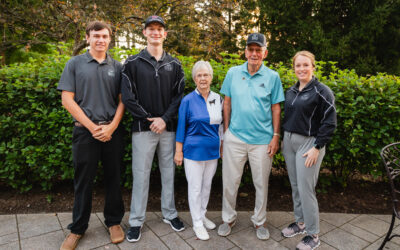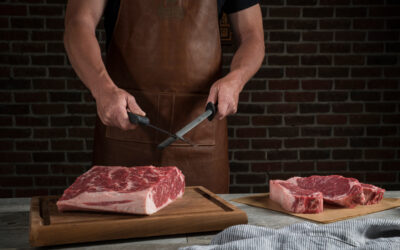
Everybody wins
50 CAB interns learn, tell brand stories across 20 years
By Maeley Herring
The cow and the egret, the bee and the flower, the Gobi woodpecker and the saguaro cactus. Add an effective internship to that list; symbiotic roles benefit each other.
Two decades ago, the Certified Angus Beef ® (CAB®) brand created an internship for its new Industry Information—now Producer Communications—Division.
It started as a way to get more done while providing opportunities for ag journalism students.
“We needed help to carry out our expanding agenda,” says Steve Suther, director from 1998 to 2018. “Interns brought fresh ideas and new ways to tell stories while getting professional work experience before entering the real world.”
More than 50 interns from across North America have contributed to the brand since then, and it’s still a two-way street.
“Interns broaden our point of view of how people see the world,” Suther says. “As we help them write more effectively, they teach us, too.”
Professional opportunities
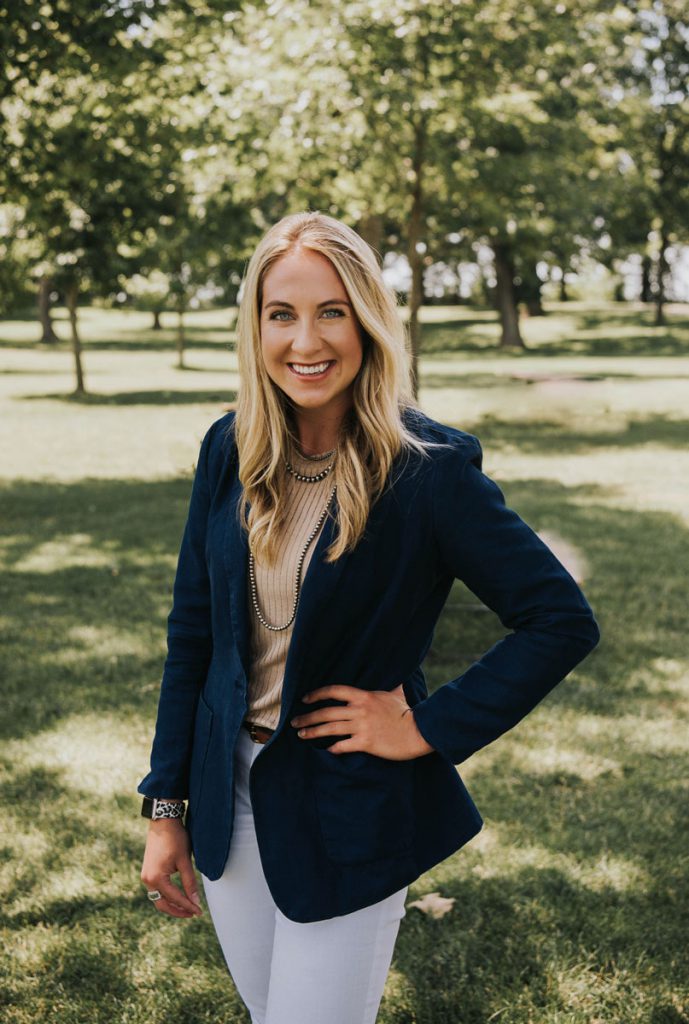
The 2015 CAB summer intern embraced those challenges, appreciated them even. “That experience put me out of my comfort zone for the better.”
Now communications director for the Minnesota Beef Council, Church looks back on her summer five years ago with “a lot of respect for the work Certified Angus Beef does.”
Then as now, interns are responsible for interviews, notes, photography and writing stories that are sent to most North American ag media and posted on the brand’s web pages.
“I got to see the fruits of my labor pay off by getting published,” Church says, “and that was really exciting as a [University of Minnesota] college student.”
Writing was the skill most improved that summer.
“I’m a woman of words,” she says with a smile, “and Steve really challenged me to develop more of a concise or technical type of writing. It changed my mind about writing, on how I apply it currently in getting a point across.”
Internships offer a sense of direction for students, helping bridge the gap between college and a professional career.
“It’s fun to see the foreshadowing and growth now looking back,” Church adds. “The best thing about internships is that you realize what your passions are maybe without understanding yourself at the time, but it’s pretty clear, just based on your path, that there’s a reason behind it all.”
Brand ambassadors
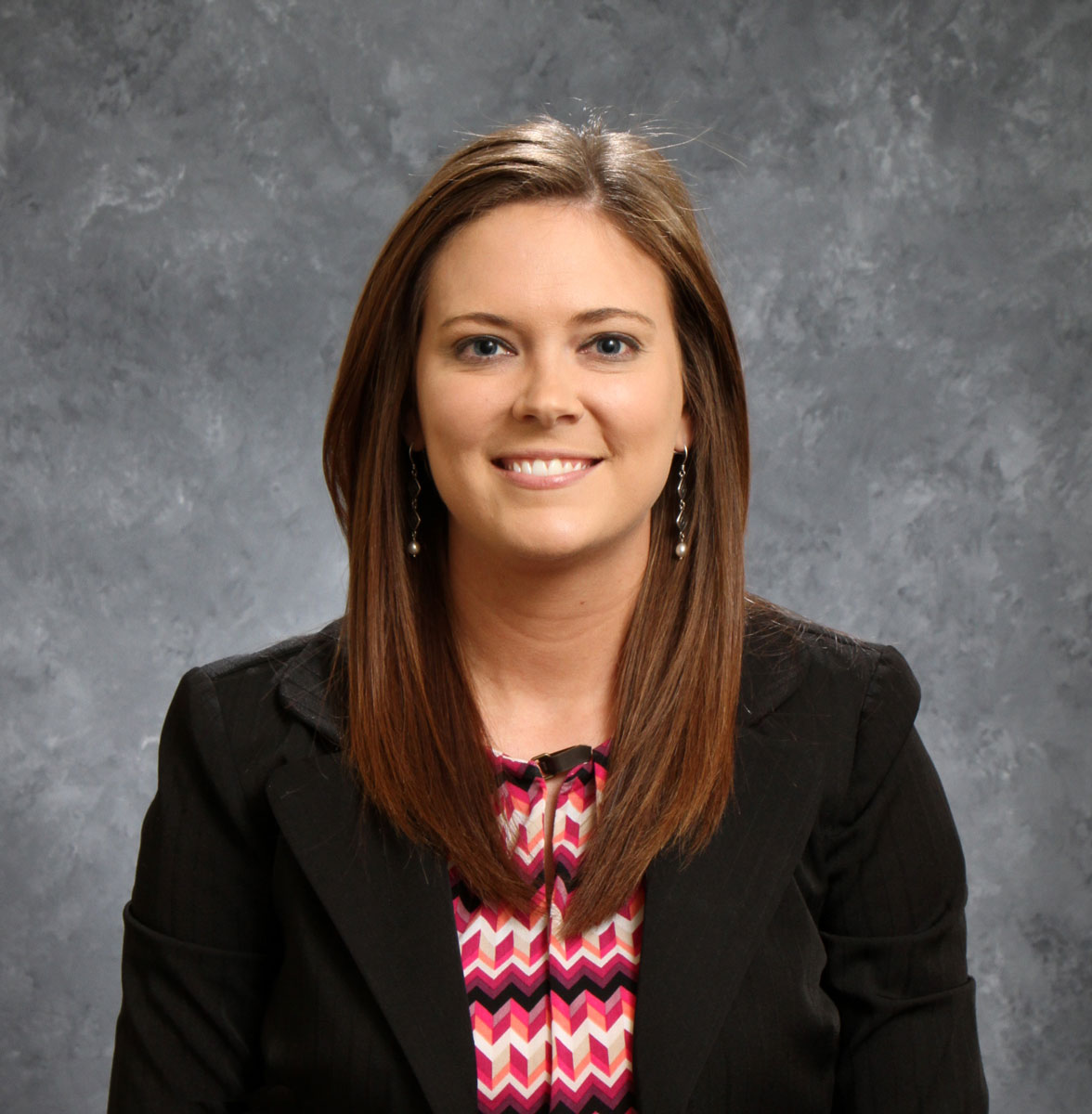
Julie (Vrazel) Tomascik’s passion for the cattle industry was as evident as her accent.
Growing up on a cow-calf ranch outside of Cameron, Texas, Tomascik knew little about other sectors, but the 2010 CAB spring internship gave the Tarleton State University student a “deeper understanding of the entire cattle industry,” she says. “Getting to talk to feedyard owners and seeing what happens after calves leave the ranch was truly an eye-opening experience.”
So was the interaction with other ranchers focused on quality beef.
“It kind of brought me out of my shell,” she says. “The on-site story trips helped expand my horizons and grow my confidence.”
The internship orients students to how CAB functions in the market so they can create on-target stories that help producers make more money, Suther says. “As they move on, they’re like ambassadors who tell the brand’s story all around the country.”
Tomascik is now Texas Farm Bureau associate director of communications and editor of print and digital publications.
“I’m working to expand public perceptions of ag and making sure our farmers and ranchers are taken care of when it comes to policy issues in Washington, D.C., and Austin,” she says, adding CAB helped her build the foundation for that job.
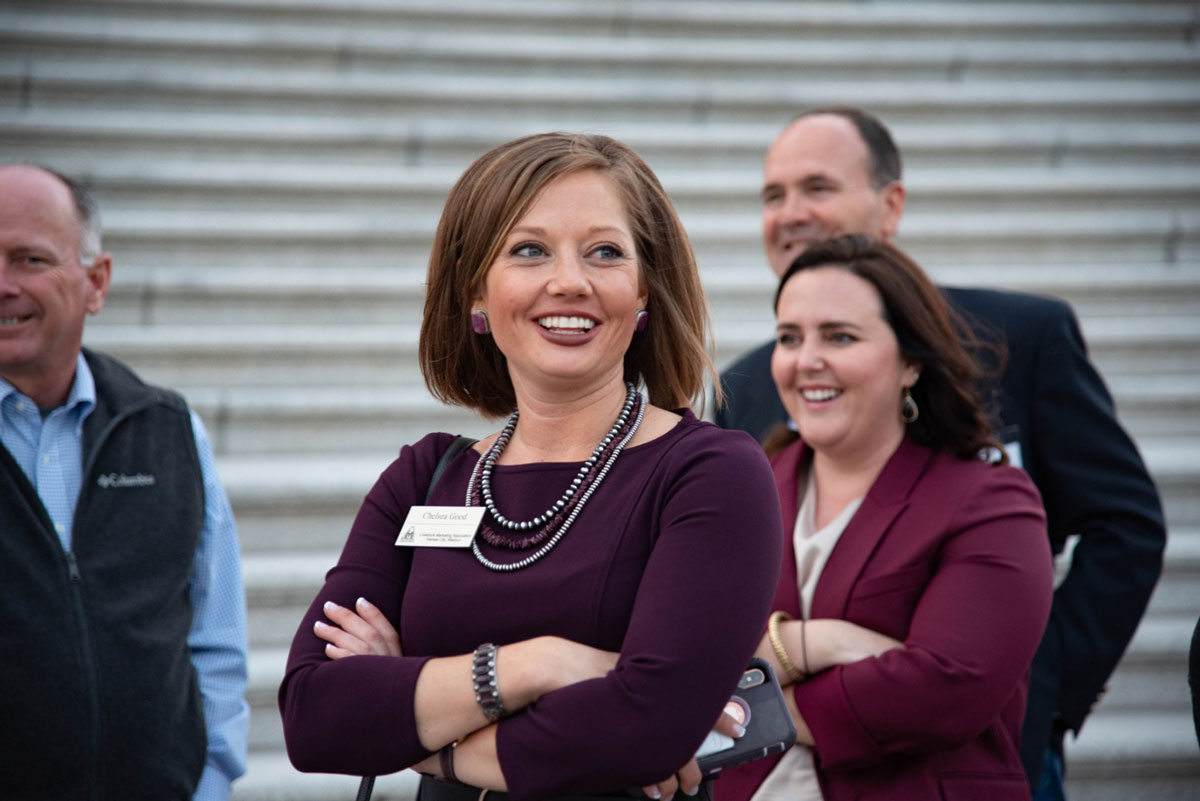
Successful investments
From the start, she knew she would end up in the beef industry in some way, shape or form.
“I was blessed to have that clarity of interest at a very young age,” says Chelsea Good, vice president of government and industry affairs and legal for the Livestock Marketing Association (LMA).
That passion for cattle pointed Good to the producer communications internship while the Colorado native was a senior at Kansas State University (K-State).
“I was learning how Certified Angus Beef was providing opportunities for producers to get value out of their investments,” Good started, “as well as getting exposure to the producers who were utilizing those CAB tools to drive value.”
Today, she works with interns and realizes what it means to teach instead of correct.
“It takes time to sit down and talk through areas where interns can improve,” she explains. “Certified Angus Beef staff were willing to take that time with me.”
Because of the brand’s intentional investment, “I left that experience much more skilled than when I went into it,” Good says.
The internship helps sharpen writing, interview and general communication skills, she says. “Those are things that have benefited me in every step I’ve had along the way.”
Her position with LMA includes advocacy for the livestock industries.
“I will always think about my time at CAB when working on issues,” Good says. “They gave me one more lens to look through as I’m thinking about our industry as a whole and how certain policies affect our producers driving toward premium quality product.”
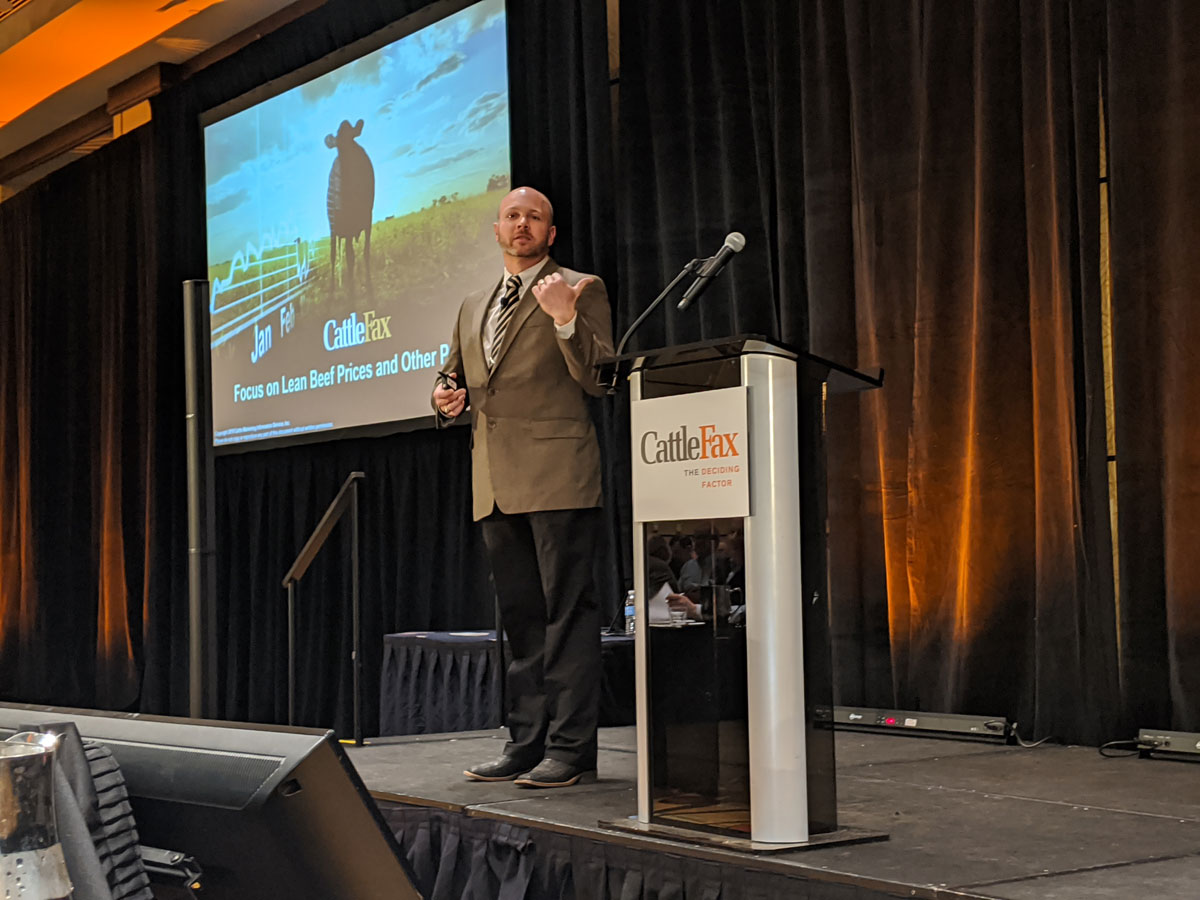
Intentional effort
After weeks of gathering notes, sorting through photos and carefully piecing everything together, Lance Zimmerman was confident and ready to turn the feature over to Suther for editing.
Hours later, red marks covered the piece.
Although discouraged then, the K-State senior from Schoenchen, Kan., soon learned how to act on those suggestions to improve his writing.
By the end of his 2002 internship, Zimmerman only had a few editing changes in those stories.
“Steve was always great about pointing interns in a direction and letting them make their own path,” he says. That’s a guiding principle for the program to this day.
Interns had creative freedom, which may result in a rougher first draft or imperfect photos, “but it created better writers and employees.” They took ownership in their work and learned from their mistakes, Zimmerman says.
Those who put forth the most effort get the most out of it.
“It takes desire” to create the kind of quality work that doesn’t go unnoticed, he says. “If you work hard enough in any internship, but especially at CAB, the company is going to give you enough experience and enough freedom to grow within the role,” he says.
Today, Zimmerman works at CattleFax as research and data manager, leading other analysts in research and projects.
With each new year and new crop of interns, the producer communications staff sees their to-do lists get shorter as students find their list of by-lined articles growing longer. It’s a win-win, all the way around.
The CAB producer communications division typically hires for summer and school-year internship positions in the fall of the year. Learn more here.
You may also like
Colvin Scholarships for Food and Agriculture Students
Investing in the future of the beef industry, Certified Angus Beef will award $100,000 to college students passionate about food and agriculture from the Colvin Scholarship Fund. Applications are across three categories and open through April 14.
Thriving with Shrinking Supply
Even as the nation’s cow herd contracts, “more pounds” and “higher quality” have been common themes. Specific to commercial cattlemen: It still pays to focus on carcass merit, in addition to other economically relevant traits.
Rob Shuey Joins Certified Angus Beef Board
Shuey knows the product and understands sales and how CAB partners view the brand. This extends internationally, given he retired from Tyson as the senior vice president of international fresh meats, lending him a global perspective for CAB’s licensed partners.

